
You most likely heard about the amazing benefits of garlic, but can your baby eat this incredible food without any side effects? Garlic is a controversial ingredient when it comes to babies.
So, you might hear different opinions regarding when you should introduce it to your baby's diet. But we will clarify everything as follows.
Jump to:
Can babies have garlic?
You can add garlic to your baby's meals as soon as they turn six months old. Some pediatricians recommend waiting until your baby is ten or 11 months old before introducing garlic.
However, it is essential to add it in small quantities and see the impact it has on your child, if any, at all. Here are some aspects you have to take into account before giving your child garlic.
Note that in terns of nutritional values, both onion and garlic have more or less same minerals and vitamins.
![]()
When Can Babies Have Garlic?
To be on the safer side, pediatricians suggest waiting until your baby completes the first birthday before introducing garlic into the baby's diet.
![]()
Benefits of garlic in babies
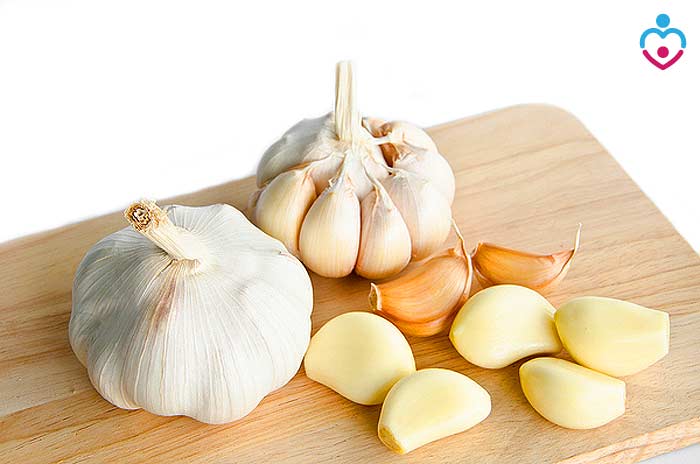
Garlic brings a lot of nutritional values to your baby's health as long as you don't feed it to them too much.
- To begin with, you will discover that garlic is rich in vitamin C and vitamin B6 but also iron, manganese, or selenium and potassium. All these are essential minerals and vitamins for the development of your baby.
- You don't have to give them garlic daily or even a lot of it at once. Just sprinkle a little pinch of garlic powder in their food, and that should be enough to add to the flavor.
- Garlic is also famous for its anti-bacterial properties and anti-fungal ones.
It is vital to consider also that the anti-protozoal effect of the garlic will keep your baby safe from infections.
![]()
Can babies be allergic to garlic?
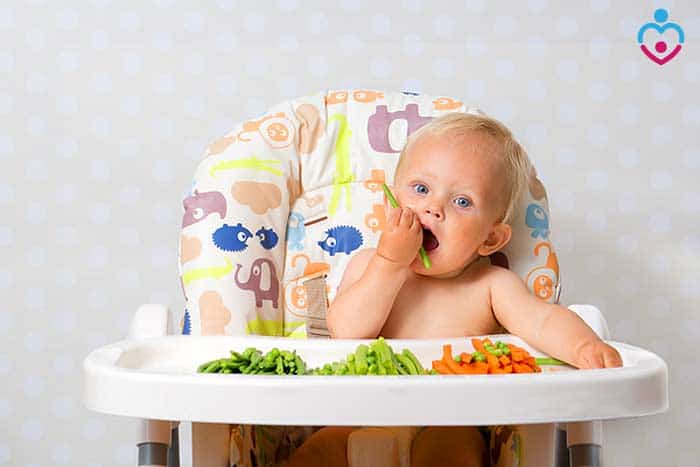
One common concern for many parents is if babies will develop allergies to garlic.
- According to the American Academy of Pediatrics (AAP), your child is less likely to develop allergies from garlic once they reach 6 months old, and they started solid foods.
- Some people are allergic to garlic from birth, and your child might be one of them. This is why it is crucial to observe the reaction your child has to this type of ingredient before you make it a regular of their meals.
- You can avoid complications and allergies by observing the side effects your baby might suffer from if they do develop an allergic reaction.
- To identify these symptoms correctly, you have to be able to recognize them. If your baby has a garlic allergy, they might have excessive gas, cramps, and even nausea.
- In extreme cases, you will notice blood in the stool, diarrhea, and even eczema or hives.
- It is essential to get in contact with your baby's doctor if you notice these reactions in them.
- In extreme cases, a garlic allergy that is left untreated can lead to anaphylaxis shock and be lethal.
![]()
How To Give Garlic To A Child?
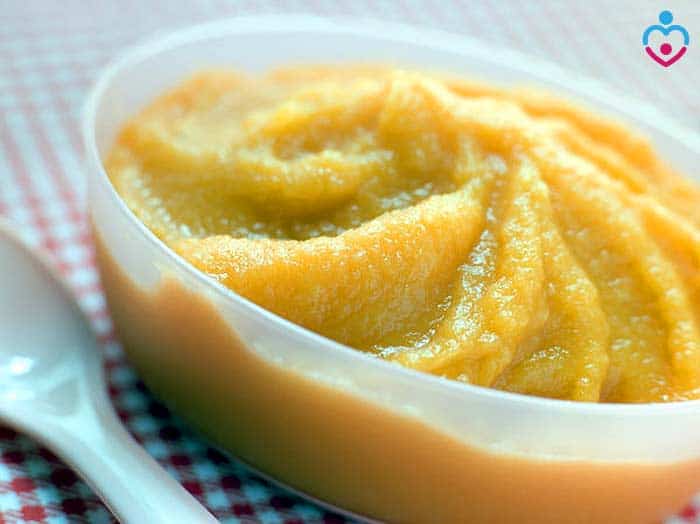
To avoid such allergic reactions, you should feed your baby cooked garlic at first and in small quantities.
- You can add a pinch of garlic as you cook your baby's purees or soups. However, you should avoid overcooking the garlic as well because this will reduce its nutrients.
- If you burn the garlic, it will also become toxic. You can add ⅛ of clove to one baby meal if it is a big clove or ¼ of a clove if it is a small one.
- Cook it along with your veggies and serve it to your baby as you normally would.
- As far as the frequency goes, you shouldn't give garlic to your baby daily.
- As a matter of fact, the first time you give them garlic, you should wait 3 to 4 days before feeding them this ingredient again.
By doing that, you give them time to react to the garlic, in case there is any reaction to it.
![]()
Can babies have garlic bread?
A typical dish that contains large quantities of garlic is garlic bread.
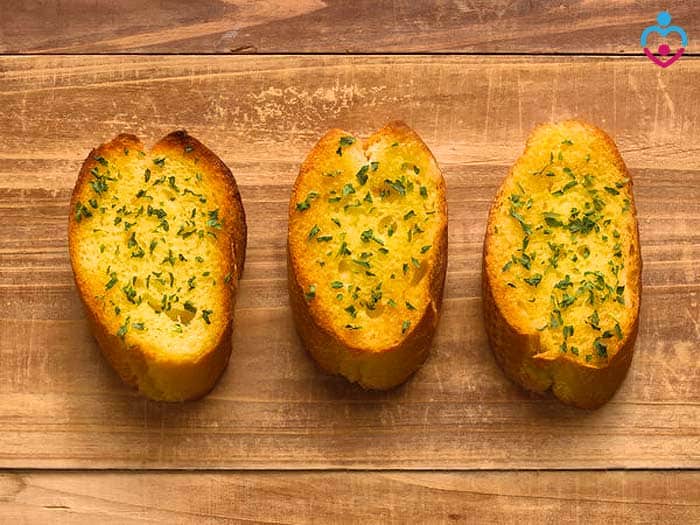
- It is important not to start introducing garlic to your baby by giving them garlic bread due to the large quantity of garlic in this food.
- However, if you already gave them small quantities of garlic and they didn't develop any reaction to it, garlic bread should not become a problem.
- Babies are ready to eat foods that are rich in garlic when they get past the 10-or-11-months stage.
- Their bodies are developed enough at that age to assimilate and digest garlic bread safely and without any side effects.
- If you decide to give your baby garlic bread, though, you should pay attention to the amount of salt in this bread. The salt can do more damage to a baby than an excess of garlic.
![]()
If you want your baby to benefit from the nutrients found in garlic, you can rest assured knowing that they can eat this ingredient.
Just keep in mind to cook it the first weeks you introduce garlic to their diet and start with small quantities of it.
Observe the potential side effects your little one might have to it and work your way up from there by adding more or less garlic according to how they receive this new food.
![]()
Key References
- "Garlic, raw Nutrition Facts & Calories". Accessed August 08, 2020. Link.
- "Garlic and onion sensitization among Saudi patients screened for food allergy: a hospital based study". Accessed August 08, 2020. Link.
- "Garlic Allergy: Symptoms and More". Accessed August 08, 2020. Link.



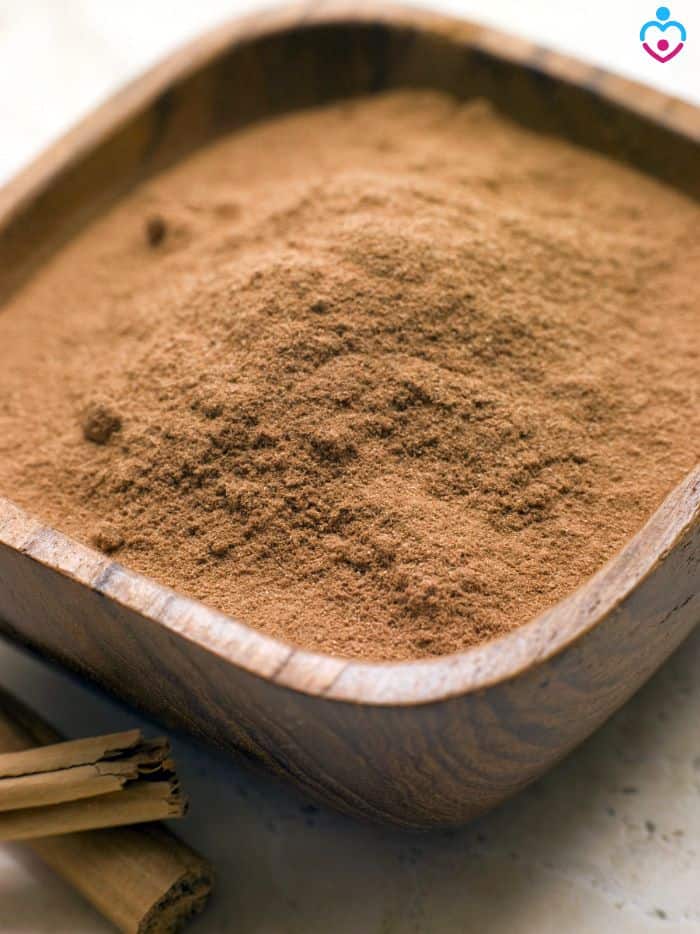
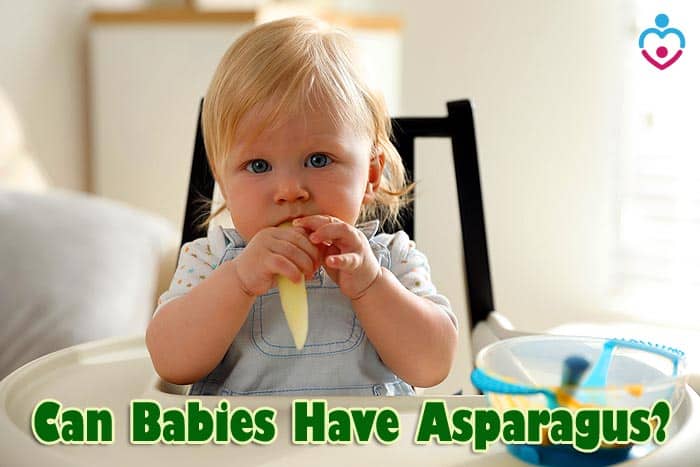
Leave a Reply